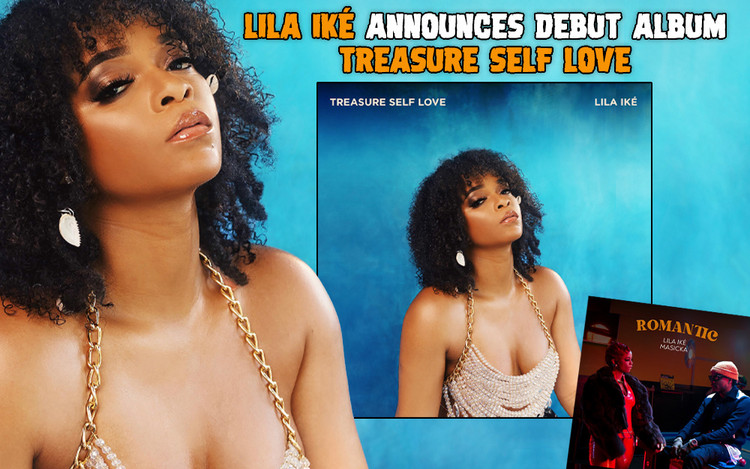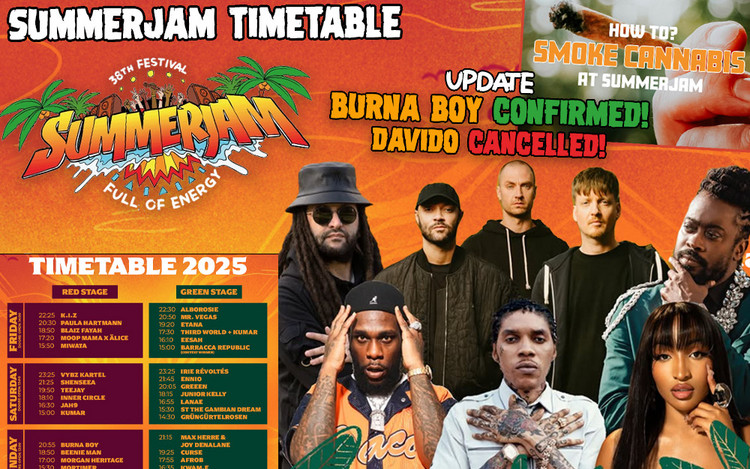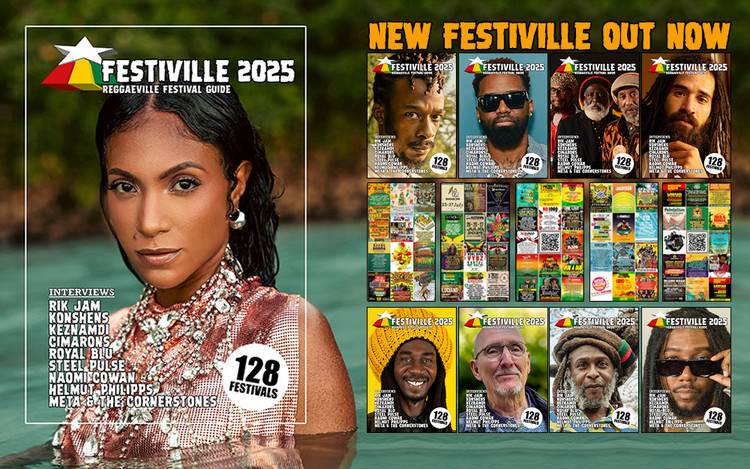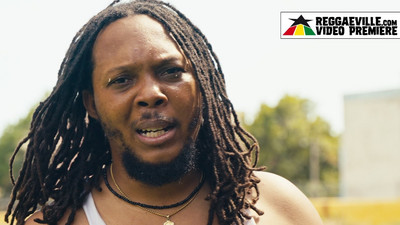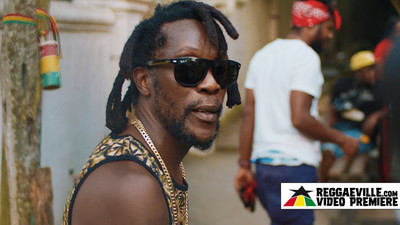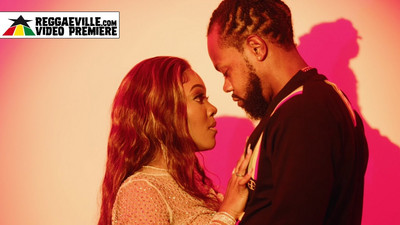Prezident Brown ADD
Interview: Prezident Brown
12/17/2012 by Justine Amadori Ketola
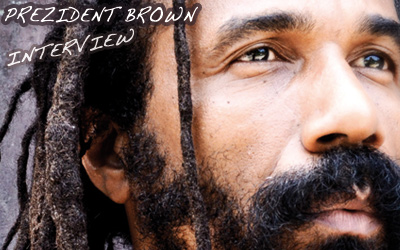
One of Jamaica's most consistent recording artists, Prezident Brown has released another thoughtful release and used his skills as a leader to bring together some of reggae's finest musicians to develop an authentic sound. The messages are honest and somewhat serious in nature, leading us to explore further this somewhat elusive artist who does not find glory in the spotlight and the hype of the music industry.
Today [Nov 8th] is the day after the U.S. presidential election, I just wanted to get context for the question, How did you get your name, Prezident? You were the Don amongst Ochi's up and coming Jack Ruby studio DJ's.
My first name was Junior Rankin. Junior was a pet name that my Mom called me. So when I started out as a kid it was just for fun and then I became Slim Brown. I used to sound a lot like U Brown so Nicodemus is the original deejay who is also U Brown's bredren. So he heard me and he called me Slim Brown. So then when I started getting popular in the dancehall soundsystem arena, I went to Jack Ruby Hi-Power and that is when I become Prezident. He is the one who put the title, and it became Prezident Slim Brown. After Jack Ruby passed and in the turn of the '90's, I just said Prezident Brown, cause I wasn't slim no more.
Moving into the recording, the first track from your new album I SOUND IS FROM CREATION, "Fi We Queen- Jamaica 50" reflects the significance of independence. You have grown up in the new Jamaica and your base is in the Ocho Rios area, what is your hope for Jamaica after the first 50 years?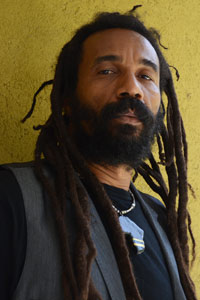 My hope is for the realization that we have to really unite, you know, more unity. Because it is the only way we can be stronger. Where the technology and the turn of the century is concerned, Jamaica is on target, it is up front with all that is happening. But as a people, I still see the need for unity and it is the same Willie Lynch syndrome. Willie Lynch was a famous slavemaster in the Caribbean and he wrote some other slavemasters in the U.S., about a psychological syndrome where he told them how to control the people and not to kill them. So that thing is still working up to now, cause that is what he said, "If it is applied properly it will work for thousands of years." For me that is the one of the main things I see, that syndrome, because it is there. I grew up as a brown skinned youth but I am from a poor background and most of my time, I was kind of told with my complexion I can make it. It shouldn't be like that. So I always resent that kind of thing. I don't want to be praised because I am a brown-skinned bredren you know.
My hope is for the realization that we have to really unite, you know, more unity. Because it is the only way we can be stronger. Where the technology and the turn of the century is concerned, Jamaica is on target, it is up front with all that is happening. But as a people, I still see the need for unity and it is the same Willie Lynch syndrome. Willie Lynch was a famous slavemaster in the Caribbean and he wrote some other slavemasters in the U.S., about a psychological syndrome where he told them how to control the people and not to kill them. So that thing is still working up to now, cause that is what he said, "If it is applied properly it will work for thousands of years." For me that is the one of the main things I see, that syndrome, because it is there. I grew up as a brown skinned youth but I am from a poor background and most of my time, I was kind of told with my complexion I can make it. It shouldn't be like that. So I always resent that kind of thing. I don't want to be praised because I am a brown-skinned bredren you know.
You are an original dancehall/soundsystem artist, how did you develop your talent and how do you see the scene shifting from that time, from when you were able to get on the mic or have studio time as a youth and to now as your development as an artist?
The change of the scene, how I saw it that it was changing until now, is the evolution of the craft as a deejay. Because remember it started out with Count Machuki, King Stitt and U-Roy, and these were people that were selectors playing sound system and they toast the mic and introduce the song, so they're considered the deejays, so the art form evolve into recording, where U-Roy started to become a famous recording artist, like U Brown, I-Roy as Jamaican Deejays, you know, toasting, so it evolved into what we now call sing-jay. So that people like myself and younger people like Sizzla, Norrisman, all of these youths….you could compare me with Tony Rebel, kind of the same dancehall era. The soundsystem chanting, its that evolution, in one sense, and in another sense, I see where there is a breakdown of the practice, to develop the artists. Right now it is just straight to the studio, all the practice is done at the studio. I don't think people have that privilege to chant a soundsystem all night. And I am a living proof of that, I did that in my days of soundsystem. I just chant all night.
And practice your craft, and get the crowd response from the people.
Yes, you get to express comfortable, show what you are made of, you have time. It is not just "wham bam thank you ma'am" and its over. So you know if I compare it that is what I see. It is all and good and the technology and the efficiency. I understand all of that is time but, my idea is to have a foot in analog and another foot in digital to create this balance for the music to stay real. It's an evolution and within there are details that we have to look at, where decay has happened and where things have been breaking down. Everything is everything still you know, just observation, it is what it is.
I'm My Own Rebel- sounds like a duet, who is it with?
That is Gary Pine, we did that one, because the lyrics kind of are how I and I trod and livity, so we just allow Gary Pine to sing it and, not even sure where I would come in, that was the idea.
On the song "Ghetto Youths" you deliver an important commentary about the young impressionable children at home in Jamaica, do you see yourself as a role model in your community, do you find yourself involved in making people know their worth?
Yes, I think I do that naturally though, not with the intention of saying that is what I am doing, I just live you know and live the best that I know how. And I am seen as that, how I live. So for me it is natural for me to be this kind of bredren that will do the right thing or the decent thing or the proper thing.
Also on "Teach The Youths Dem (Meditation)" you point out the journey and issues of the youth, sufferation in Jamaica, "destruction of we culture and we children." How do you see this affecting the next generation, what type of issues do they face?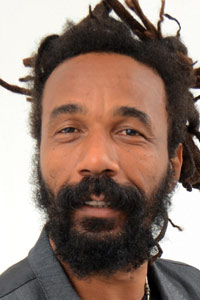 Especially the attention span, we can look at it from a musical point of view because music is my trade and that's my business, I kind of tend to see through the eyes of the music. The youths are rampant, I notice about them when they sing they sing about sex its graphic, very, very graphic, there is no poetry, there is no imagination left you know. I don't want to make a judgement if it is good or bad, right or wrong, it just is. But I observe and I think for me when I am going to impart whatever I have to say what I want to say through music, I want to do it poetically you know. So even the culture and the stance or point of view that we right songs from changed. So the younger artists now, they more come from a rapping point of view or a hip-hop point of view. So there is a lot of change in the culture still, cause the bling culture kind of take over. And every youth think they have to get rich now and whatever they want they want it now, so the attention span is very short. These are the pitfalls that I see culturally still.
Especially the attention span, we can look at it from a musical point of view because music is my trade and that's my business, I kind of tend to see through the eyes of the music. The youths are rampant, I notice about them when they sing they sing about sex its graphic, very, very graphic, there is no poetry, there is no imagination left you know. I don't want to make a judgement if it is good or bad, right or wrong, it just is. But I observe and I think for me when I am going to impart whatever I have to say what I want to say through music, I want to do it poetically you know. So even the culture and the stance or point of view that we right songs from changed. So the younger artists now, they more come from a rapping point of view or a hip-hop point of view. So there is a lot of change in the culture still, cause the bling culture kind of take over. And every youth think they have to get rich now and whatever they want they want it now, so the attention span is very short. These are the pitfalls that I see culturally still.
The production on this release is very intricate, very careful and thoughtful and unique in of itself. What is the process you went through to get these tracks down as you collaborate with Devon Bradshaw and Beezy Coleman on this record?
We are good friends too you know, we are musical friends so we stay in close contact. We gather together as often as possible. For many years Devon Bradshaw was my band leader. I do a lot in the U.S. and he is always out there with me helping to build. So all of this he came with me and see where I am at as an artist. What is needed, for me to stand on so that is how this thing came about. He just kind of did 2002, 3, 4, 5 up to 2006 we were always on the road together. He has a studio and we are always buying studio equipment together, we do a lot together. So when it is time to make music together, we are like kids, we are just so excited like little kids. That is the perspective it is made from but it is also made from a serious perspective where we are preserving the music and the sound of the live band in studio, not just computer.
You use the technology wisely, using the autotune.
Exactly and still keeping Prezident Brown through the machine.
The idea of those machines was to make a specific sound during the '80's and the development of dance and funk and R&B music. So using it now is creative and also you make songs that the technology compliments.
We are also showing that we are aware of the times and aware of where its at.
You give these songs life with some ideas from Burning Spear and Bob Marley and the Wailers, Steel Pulse who else inspires you, perhaps outside of reggae?
I really like a lot of older American artists like Curtis Mayfield and people like that. Bobby Womack, and I like Ray Charles. I do listen for the younger generation, I am not negatively critical about the young pop artists, but I am not a fan of pop really, I go deeper than pop. I will like an artist like Jaheim, he is very good but he is not like a pop, mainstream American artist. I am like that, I will find different artists who I like, who is not really considered the thing.
The song "Be Careful (Rags to Riches)" has flute and a horn section, where were they recorded and how did you work on that arrangement?
That came from my experience growing up around Jack Ruby. Because all of these musicians like Vin Gordon on trombone and Glen Dacosta (on sax), these are people that I as a youth I was around when they come to arrange horn section. So I have the experience so what I did was I got them together. For me it is fulfilling that imagination, that image that dream, when I do this I kind of feel like the spirit of Jack Ruby is some where smiling. Because I am continuing something that he would have loved. We are getting all these people to play music together, I think it is a big song. If it doesn't go big, but for me, from where I am standing and where I am coming from it is a big song. We have great musicians playing, we have Nelson Miller, who used to be Burning Spear's drummer. Devon on bass, Beezy on guitar, ya, I feel good about that music.
You have a large West Coast US following, why do you suppose that is? 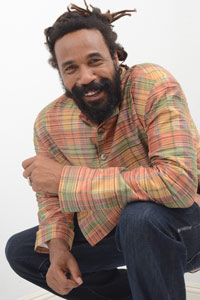 I am not sure why it is, I just flow with it. I am an artist who from a personal or individual level don't like to be up into everything. So I kind of have that tendency from Jamaica, to not be up into everything. I kind of create my own way many times, I live in the countryside, I visit the city when I have to work, but I do not dwell in the city. I am not popular in the city, I am not seen very often in the city, I am that kind of bredren you know? So I think that energy flowed over to the West Coast, Northern California, for some reason the people took on to my energy. It became like a second base, the love that I got from these people, became a second home. So I operate from there, booking and band and all of this is concerned.
I am not sure why it is, I just flow with it. I am an artist who from a personal or individual level don't like to be up into everything. So I kind of have that tendency from Jamaica, to not be up into everything. I kind of create my own way many times, I live in the countryside, I visit the city when I have to work, but I do not dwell in the city. I am not popular in the city, I am not seen very often in the city, I am that kind of bredren you know? So I think that energy flowed over to the West Coast, Northern California, for some reason the people took on to my energy. It became like a second base, the love that I got from these people, became a second home. So I operate from there, booking and band and all of this is concerned.
Now you are in France, are you on tour there?
I just did a show in Paris with Willie Williams, and tomorrow I will be in Montpelier, so I have three more shows and I am going to do these shows dancehall style, with soundsystem. I am taking the opportunity to promote this cause back in the early '90's France was also a place that I got good reception. They really love me in Paris, so I always do my best to keep coming and keep presenting.
What else do you have to say to the world as someone who doesn't like to necessarily grab the spotlight?
Really and truly my message is just One Love still, one unconditional love. I think we as human beings, we are creatures of habit, so we have the habit of thinking love just is something that is convenient to you, or you just love someone because they are convenient to you, and love is really bigger than that still. I am talking about that big love, and then if you want to say it is God, or you know whatever force you want to call it. I don't really want to tell no one what to call it, I say Jah Rastafari I say Haile Selassie, it is the same thing. One love, one energy,that sustains life and sustains the world that we live in.




